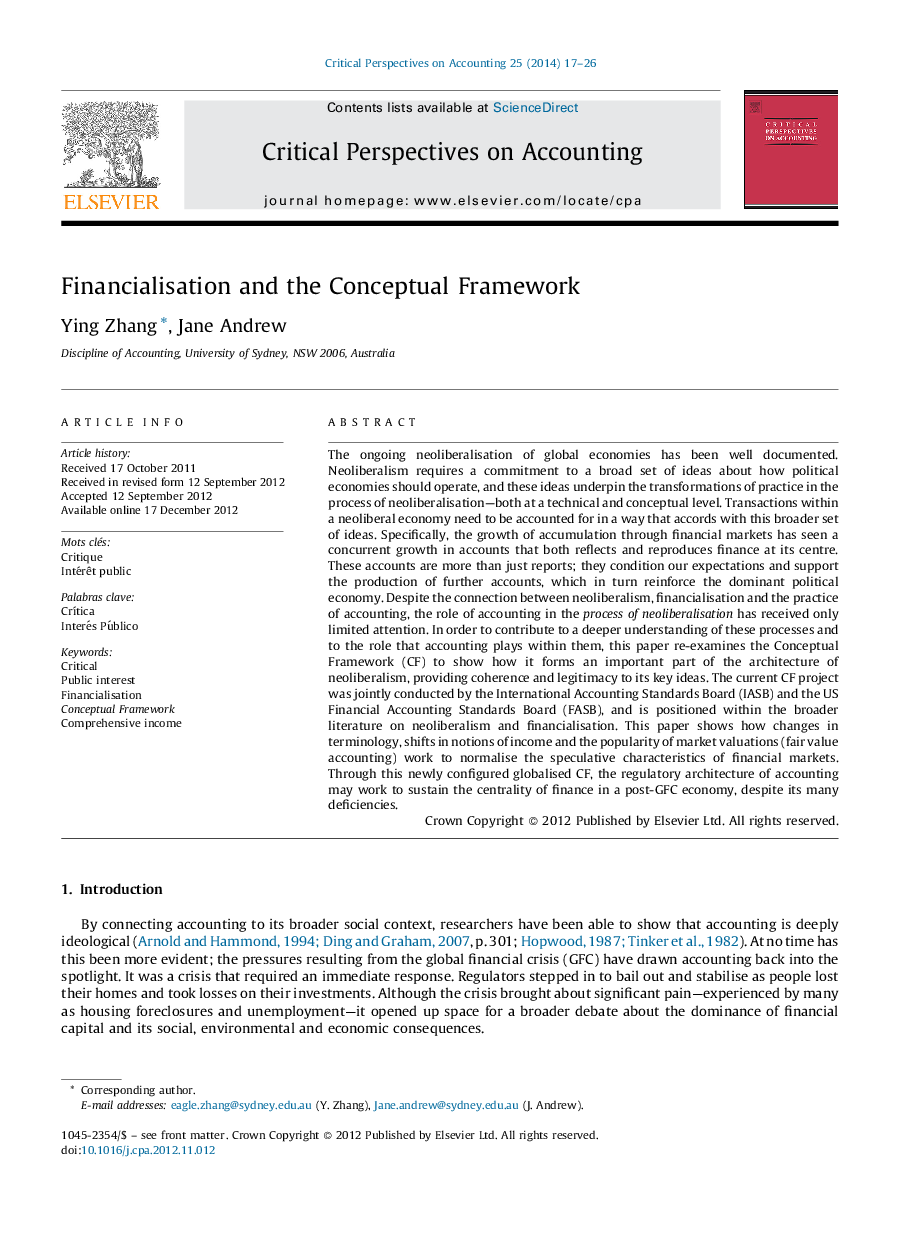ترجمه فارسی عنوان مقاله
مالیگرایی و چارچوب مفهومی
عنوان انگلیسی
Financialisation and the Conceptual Framework
| کد مقاله | سال انتشار | تعداد صفحات مقاله انگلیسی |
|---|---|---|
| 41710 | 2014 | 10 صفحه PDF |
منبع

Publisher : Elsevier - Science Direct (الزویر - ساینس دایرکت)
Journal : Critical Perspectives on Accounting, Volume 25, Issue 1, February 2014, Pages 17–26
ترجمه کلمات کلیدی
منافع عمومی - مالیگرایی - چارچوب مفهومی - درآمد جامع
کلمات کلیدی انگلیسی
Critique; Intérêt publicCrítica; Interés PúblicoCritical; Public interest; Financialisation; Conceptual Framework; Comprehensive income

